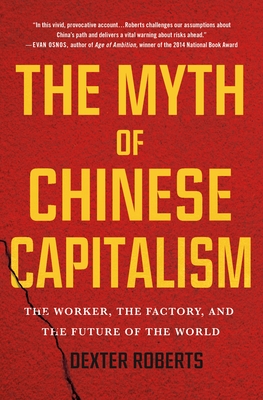Expedite your nonfiction book discovery process with Readara interviews, summaries and recommendations, Broaden your knowledge and gain insights from leading experts and scholars
In-depth, hour-long interviews with notable nonfiction authors, Gain new perspectives and ideas from the writer’s expertise and research, Valuable resource for readers and researchers
Optimize your book discovery process, Four-to eight-page summaries prepared by subject matter experts, Quickly review the book’s central messages and range of content
Books are handpicked covering a wide range of important categories and topics, Selected authors are subject experts, field professionals, or distinguished academics
Our editorial team includes books offering insights, unique views and researched-narratives in categories, Trade shows and book fairs, Book signings and in person author talks,Webinars and online events
Connect with editors and designers,Discover PR & marketing services providers, Source printers and related service providers
The Myth of Chinese Capitalism : The Worker, the Factory, and the Future of the World
Interview with Dexter Roberts


Interview Summary
While gleaming towers, high speed trains and expressways of urban China are well known, there is another China that most of us know very little about. In the last three decades, the rural interior of China has seen a mass exodus of people as factories in coastal regions promise a dream of rising wages and prosperity.
Author Dexter Roberts offers a rare view of how the rural China is affected by this mass exodus in The Myth of Chinese Capitalism. With the help of several interviews with migrant workers, business owners, labor activists and policymakers, the veteran China journalist provides valuable insights into how Beijing policies are impacting urban and rural families differently.
China’s rapid rise to “factory of the world” status is driven by the willingness of farmers to abandon farming and move to urban areas in search of higher income and better life. However, China’s hukou policy has created a two-tier system and prevents migrants from setting roots and forming families in urban areas. Even after working for more than three decades, as many as 400 million workers are still migrants and cannot settle down in prospering cities, finding it also difficult to return home.
As the availability of cheap factory workers in China begins to shrink, Beijing policy makers are forcefully advancing rapid factory automation to preserve economic growth rate. However, the rapid “robot adoption” is coming at the same as more and more foreign companies are leaving China, forcing migrant workers into low-skill service jobs.
There are several myths surrounding the Chinese economy and the book deals with a few of them head on. The middle class in China will keep expanding; migrants will return to the countryside and spark the service economy boom; economic reforms will soon be followed by political reforms; and China is all equipped to avoid Japanese-style economic stagnation.
China is facing not only the middle-income trap but also the rapidly slowing economy, dramatic income and wealth inequality, a sharp decline in birth rate and extraordinary debt burden. Despite the best efforts of the government, the Chinese economy is likely to slump into years of stagnation similar to the one faced by neighboring Japan, once the factory to the world.
Key Topics
- How have China’s top-down policy directives created the world’s largest migrant population?
- Who are China's migrant workers and why are they not able to settle down?
- How does China’s hukou policy facilitate rapid economic expansion but also alienate migrants?
- What factors have driven the rise of factories in China’s coastal region?
- How do public officials exploit migrants by providing poor working conditions?
- How does family separation affect migrant children?
- What drives the urban and rural divide in China?
- What challenges do migrants face when they return home to settle down?
- How is China’s demographic dividend turning to liability after three decades of rapid expansion?
- Will China be able to escape the middle income trap and avoid Japan-like economic stagnation?
About Dexter Roberts
Dexter Tiff Roberts is an award-winning journalist serving as a Nonresident Senior Fellow in the Atlantic Council's Asia Security Initiative and a Fellow at the University of Montana's Maureen and Mike Mansfield Center. He is a regular commentator on the U.S.-China trade and political relationship. Previously he was China bureau chief and Asia News Editor at Bloomberg Businessweek, based in Beijing for more than two decades. He has reported from all of China's provinces and regions including Tibet and Xinjiang, covering the rise of companies and entrepreneurs, manufacturing and migrants, demography and civil society. He has also reported from North Korea, Mongolia and Cambodia, on China's growing economic and political influence. His recent reporting has focused on how legacy policies from China's past, including its household registration system, are leading to growing inequality and social tension, and are holding back the country's development.
Roberts has won numerous journalism honors, including Overseas Press Club awards, the Sidney Hillman Foundation prize, Human Rights Press awards, and Society of Publishers in Asia editorial excellence awards. He has a bachelor's degree in political science from Stanford University, where he was a National Merit Scholar, and a master of international affairs focusing on China and journalism from Columbia University, where he was a recipient of the New York Financial Writers Association Scholarship. He is fluent in Mandarin Chinese and studied at National Taiwan Normal University's Mandarin Training Center in Taipei, Taiwan.
